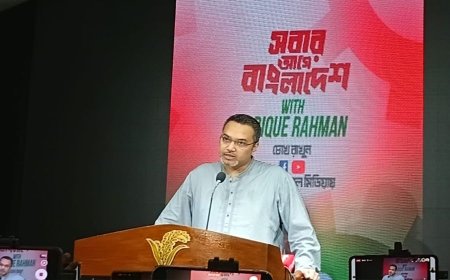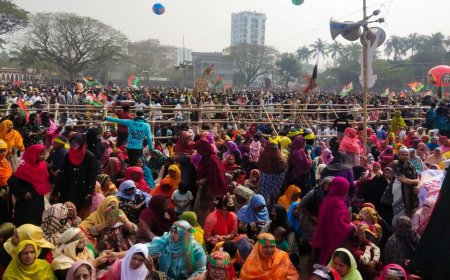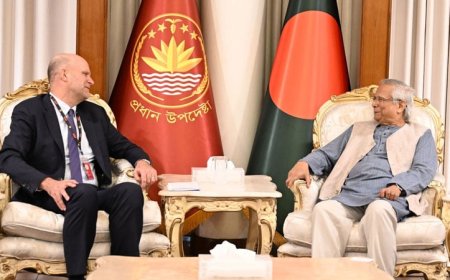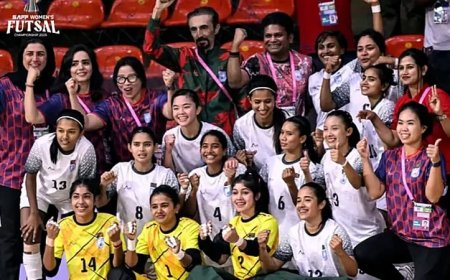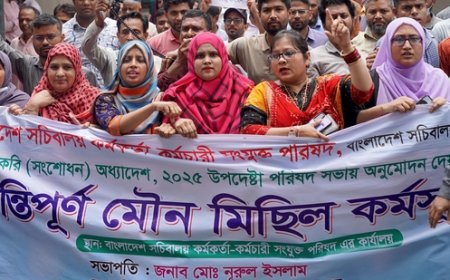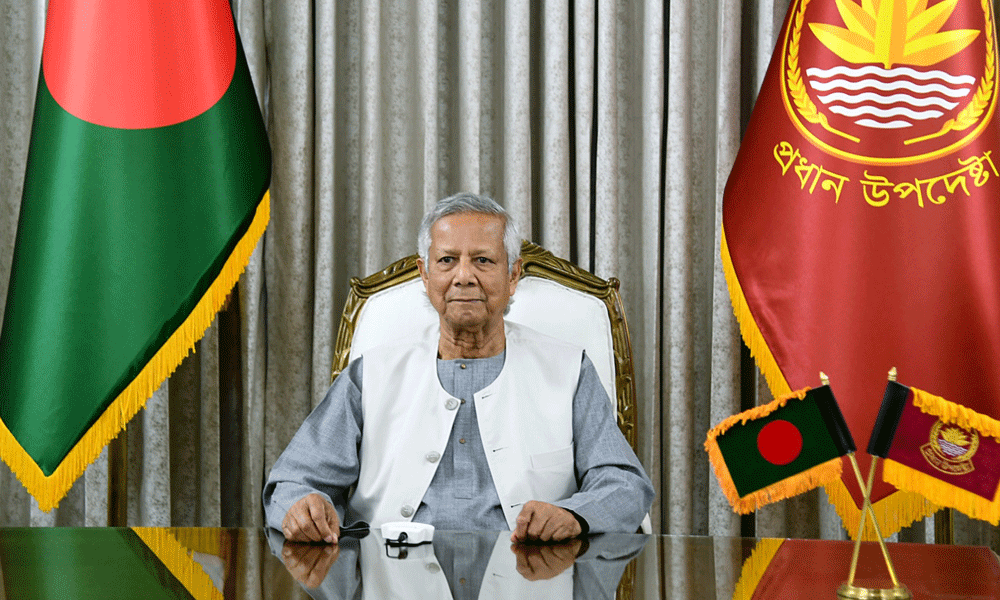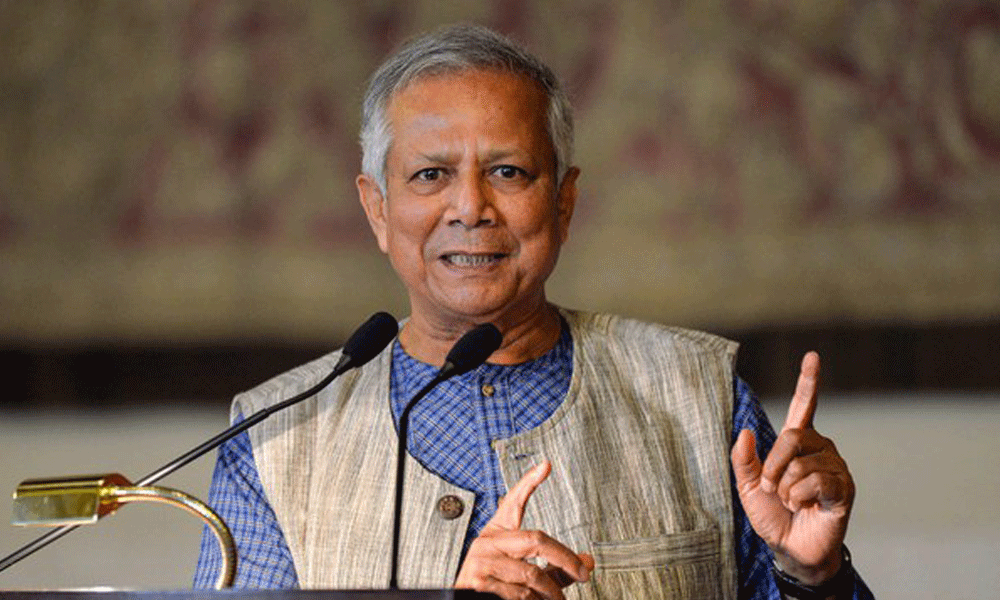Outdated Trust Law Breeds Exploitation and Corruption in Bangladesh
Many private universities in Bangladesh are run by trusts, but the Trusts Act lacks clear provisions governing them.
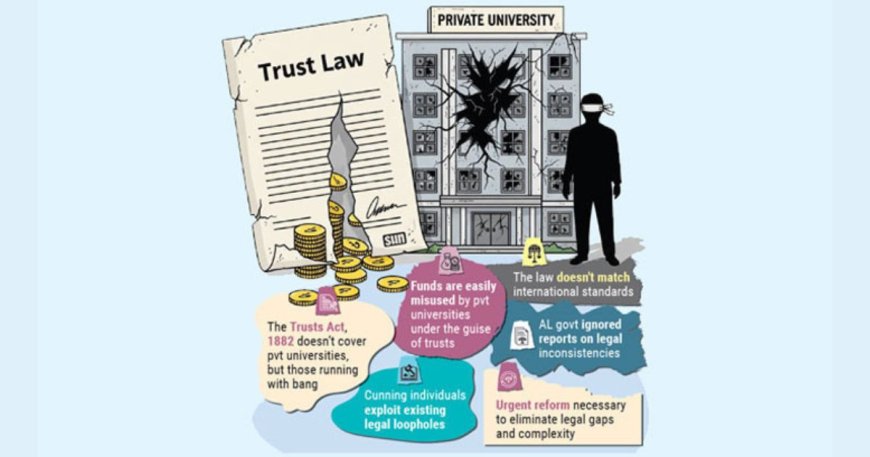
Outdated Trust Law Hampers Oversight in Private University Sector
The Trusts Act of 1882, a colonial-era relic, continues to create major challenges in transparency and accountability—particularly in the fast-growing private university sector in Bangladesh.
Legal experts have criticised the 143-year-old law as overly complex and ill-suited to modern financial realities. It remains full of loopholes that enable exploitation and corruption, often under the guise of trusteeship. Although many private universities operate under a trust framework, the law lacks explicit provisions for them. Despite minor amendments, the law continues to govern private trusts, enabling unscrupulous actors to misuse its ambiguities for personal gain.
A glaring example is the North South University (NSU) scandal, where board members reportedly misappropriated over Tk10 crore, inflated sitting allowances, and used university funds to buy luxury vehicles.
Experts argue that the law’s loopholes are particularly exploited for tax evasion. Supreme Court lawyer Muzahedul Islam Shahin noted that even legal professionals struggle with the law’s complexities, which make it fertile ground for manipulation.
Private universities, however, do not fit the traditional legal definition of a trust—typically involving the transfer of property for the benefit of others. Section 15 of the Private University Act, 2010, mandates that universities be governed by a Board of Trustees, but the Trusts Act does not clearly outline how such boards should be formed.
Prof Sarwar Jahan, a trust law expert and founder of Southern University, stressed that students—who pay for services—are not true beneficiaries under the current trust definition, raising questions about the law’s relevance.
Corruption at NSU went beyond exploiting loopholes—it involved outright lawbreaking, said Syed Mahbubul Alam Tahin, secretary of the Center for Law and Policy Affairs (CLPA) Trust.
Globally, countries like the USA, UK, Australia, and India enforce strict accountability in trust laws, especially where tax exemptions are involved. Charitable trusts abroad are required to reinvest income into public welfare and must meet stringent reporting and governance standards—unlike in Bangladesh.
Mohammed Mokhlisur Rahman of the Kanaighat Association UK remarked that the UK system allows little room for misuse, unlike Bangladesh’s opaque trust environment.
Given this backdrop, legal experts have long called for reform. The Law Commission, in 2017, proposed scrapping the 1882 Act in favor of three distinct laws: the Private Initiative Trust Act, Public Trust Act, and Trusts (Public and Private) Act. The proposed reforms aimed to resolve inconsistencies and prevent misuse across public, private, and charitable trusts.
Despite receiving the report, the then Awami League government, led by Sheikh Hasina, failed to act on it during its remaining eight years in power.
Legal professionals stress that Bangladesh needs modern, clearly defined trust laws aligned with global standards to curb misuse and ensure accountability—especially in sectors like education that directly impact public interest.
What's Your Reaction?







